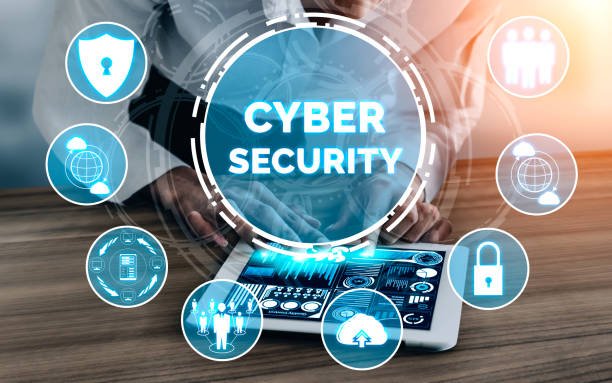
Cybersecurity in Businesses – Importance, Challenges
For all enterprises, cybersecurity is no longer an option, but a requirement. In an age when technology influences almost every aspect of our lives, businesses are extremely vulnerable to cyber-attacks and data breaches.
According to Forbes, cybercrime costs $2,900,000 each minute. This equates to $171 million every hour and $3.5 billion each day! A successful cyberattack harmed 86.2 percent of surveyed organisations, according to the Cyberthreat Defense Report.
With the amount of cyberattacks on the rise, businesses must take every precaution to protect themselves from hackers and other cybercriminals.
According to a research, one out of every three small enterprises uses free consumer cybersecurity, while one out of every five does not utilise any endpoint protection at all.
Cybersecurity is a must-have for any company in this area. And you should go to Prilient if you’re looking for the top cyber security and penetration testing businesses. Here’s a rundown of the relevance of cybersecurity in the workplace:
Top 10 Prominent Importance of Cybersecurity in Business
1. It Can Protect Your Business Reputation
Did you realise that? There was a 67 percent increase in security breaches between 2014 and 2019. A data breach might also have a negative influence on your company’s reputation. Most companies don’t think about the ramifications of a data breach until it happens.
- In fact, 60% of businesses that have a security breach go out of business within six months. A data breach could have the following consequences:
Customers are leaving your company. - The value of your company’s shares plummets.
- You will be fined by the government.
- Your company has been placed on a blacklist.
- You’re in the news for all the wrong reasons.
- Furthermore, cyber security should be your primary focus to avoid such a loss of reputation. It can assist you in safeguarding your clients, business, and data.
2. Protects Personal Info From Hackers
During a cyber-attack, your company’s data isn’t the only thing at risk. Your employees’ and customers’ personal information is also at risk.
When hackers gain access to this type of sensitive information, they can use it to perform crimes including identity theft, fraud, and extortion.
As a result, cybersecurity can assist in protecting your employees, customers, and yourself from a variety of cyber-attacks. Furthermore, several app development firms use blockchain technology to build more secure platforms.
The blockchain idea of decentralisation, for example, can be used to construct a secure system that is not reliant on a single authority. Furthermore, this would make it more difficult for hackers to break into the system and steal information.
As of February 2021, there are approximately 68 million users of blockchain wallets. The number continues to climb as new blockchain wallets and cryptocurrencies are released to the market, with Bitcoin leading the way with a market cap of $928.50 billion.
3. Allows Employees to Work Safely From Anywhere
Company data is now available from any device thanks to the growing use of cloud services. This allows employees to work securely from any location.
However, this increases the risk of cyber-attacks because unwary staff can easily download malware onto their devices.
By providing security measures such as password protection and firewalls, cybersecurity can assist protect your company’s data. It can also assist you in keeping track of staff activity in order to spot any unusual conduct.
4. Protects Productivity and Efficiency
Cybersecurity may also protect the productivity and effectiveness of your firm. Are you pondering how? Here are a few ideas:
- It creates a secure atmosphere for collaboration and communication.
- It helps employees to access files, apps, and websites more quickly.
- Employees in an organisation can readily share data via the Internet.
- Employees can work from wherever without worrying about security or connectivity.
All of these elements combined can help your employees be more productive and efficient. Furthermore, they can assist your company in generating cash in ways you may not have imagined.
5. Stop Your Website from Going Down
Attacking your website is one of the most common ways for hackers to obtain access to your company’s data. They accomplish this by sending a torrent of traffic to your website until it crashes.
This is referred to as a denial-of-service (DoS) assault, and it can be extremely costly to your company. Furthermore, recovering from such an attack might take time, and your consumers may not be willing to wait that long.
In that case, a cybersecurity solution like a web application firewall (WAF) might be used to defend your website from such attacks. It can assist in reducing traffic and keeping your website operational.
Furthermore, you might seek the assistance of a website development firm for website security solutions. Their experts can assist you in setting up a WAF and other security features for your website.
6. Protection from Malicious Software and External Attackers
Malicious software, sometimes known as malware, poses a serious risk to your company’s data. This programme can be installed on your devices by hackers in order to steal your data or take over your system.
- Malware comes in a variety of forms.
- Viruses are computer programmes that can replicate and propagate from one computer to another.
- Worms are self-replicating programmes that can infect or take control of a computer system.
- Trojans: Malware that imitates legitimate software but is intended to harm your machine.
- Spyware is software that is placed on a computer to monitor the activities of its users.
- Adware is software that shows advertisements on the user’s computer.
Phishing is a scam in which a hacker sends out bogus emails that appear to be from a legitimate company, such as a credit card company or a bank. The purpose is to persuade the user to reveal sensitive information such as login passwords.
Phishing activities were responsible for 32 percent of data breaches last year, according to Verizon’s Data Breach Investigations Report.
If any of these threats harm your business, you can protect your equipment with the help of a cybersecurity solution. Antivirus software, firewalls, and anti-phishing software can all aid in the detection of malware and the protection of your devices from external threats.
In addition, technology such as IoT, AI, and machine learning are utilised to combat cyber-attacks. Machine learning algorithms, for example, can detect and prevent harmful traffic. As a result, be sure you’re protecting your company’s data with the most up-to-date technologies.
7. Support Your IT Expertise and Infrastructure
You don’t have the in-house knowledge to deal with cybersecurity issues, like most firms. A robust cybersecurity solution will come in handy in this situation. It can give you the tools and help you need to safeguard your company’s information.
It also has features that might help you optimise your IT infrastructure, such as:
- Management and reporting are centralised.
- Detection and response by robots
- Other security solutions can be integrated
- Service-based deployment
These capabilities can help your IT staff become more efficient and successful. They can assist you in better managing your company’s IT infrastructure and network.
8. Inspire Confidence in Your Customers
Having effective cybersecurity solutions in place might help your consumers feel more secure. They’ll be aware that you’re taking the required precautions to safeguard their data and privacy.
This is particularly crucial in today’s world, as data breaches are becoming more regular. Customers also want to do business with organisations that they can trust and that follow strong cybersecurity procedures.
Remember that client trust is a valuable asset that can be extremely useful to your company. As a result, make every effort to protect your clients’ personal information.
These are some of the benefits of cybersecurity in the workplace. Let’s look at the current cybersecurity concerns that businesses are facing.
What Are The Challenges of Cybersecurity That Many Business Owners Face?
The following are some of the cybersecurity concerns that business owners face:
- Cyber-threats are becoming more prevalent.
- A scarcity of qualified personnel to safeguard networks and data.
- Connected systems and devices are vulnerable.
- Many business owners have a weak awareness of cyber dangers.
- The price of putting in place efficient cybersecurity protections.
So, what can you do to improve your cybersecurity efforts and keep your company safe?
Conclusion
These were some of the important takeaways from the article on cybersecurity. Companies can strengthen their security posture and protect themselves from potential threats by following the advice given.
The stakes are high, and the ramifications might be disastrous. Staying aware and taking precautions to secure your data from prospective attackers is critical.
Furthermore, hiring the top IT consulting business in India, such as Prilient, can assist you in implementing the best cybersecurity measures.
They will give an end-to-end solution, allowing you to concentrate on your main business without having to worry about cyber threats. So, remain safe and put these recommendations into action right now!




Tried these cbd tinctures in the forefront bed a few times in and they truly work. I’m chiefly tossing and turning, but with these I ruin surpass up falling asleep technique quicker. No freakish hangover compassionate in the morning either. Kinda excessive, but forthrightly value it when I just need a textile tenebriousness’s sleep.